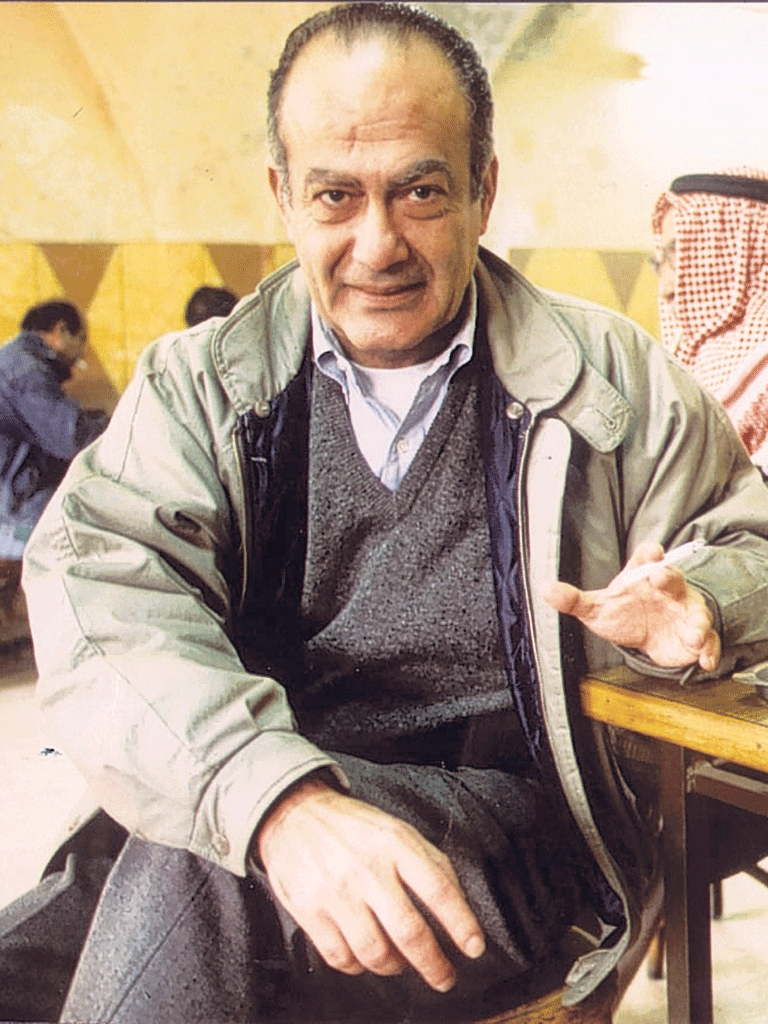Said Aburish: Writer whose works shed much valuable light on affairs of the Middle East

Said Aburish was one of the finest chroniclers of Middle Eastern affairs, and wrote acclaimed biographies of some of the region's leading figures. His works on the Israeli-Palestinian conflict include Cry Palestine, Children of Bethany and The Forgotten Faithful: The Christians of the Holy Land. He wrote three major biographies, Nasser: The Last Arab, Arafat: From Defender to Dictator, and Saddam Hussein: The Politics of Revenge. He also acted as an adviser to Saddam Hussein, a period in his life he came to regret.
The eldest of seven children, he was born in al-Eizariya, also known as Bethany, on the West Bank. He studied in Jerusalem for the first 13 years of his life until the declaration of the State of Israel in 1948, when his home town fell under Jordanian military occupation.
His father, Abu Said, was hired as an assistant by the Daily Mail correspondent in the region, reporting from the Arab side on the battles that took place when the state of Israel was proclaimed in 1948. He moved the family to Beirut as the fighting continued, and worked there for decades, becoming an influential character in the Beirut bureau of Time magazine.
A year or so after the family moved to Beirut, Said was sent to a Quaker boarding school in Pennsylvania – and said that he there became a Quaker (though he said that nobody believed him). It was not a conversion, he said, but an addition to his life, and in any case he was much too much of a sceptic to be religiously observant. In one bedside discussion earlier this year, he told me that the Muslim belief that all will be judged by having their good deeds weighed against the bad was the only thought that gave him solace.
He completed his education in America, studying at Princeton and working towards a PhD at the University of Chicago with a focus on the writings of Ernest Hemingway. He sometimes spoke English like a character in a Hemingway story, and enjoyed Cuban cigars.
After working for Ted Bates Advertising in America, Aburish returned to Beirut to report for Radio Free Europe, where monitoring Arab radio broadcasts allowed him to break a number of stories; he was also hired by his father's former employer, the Daily Mail. He then moved to London, where he became fascinated with the British aristocracy – and they with him. He lived in a world of wealth, gossip, journalism and dinner parties.
He agreed to become an adviser to the Iraqi dictator Saddam Hussein, nominally on "American affairs" but in reality as an adviser on arms. He agreed to help build up Saddam's weapons capacity, he said, as a conscious decision motivated by Arab nationalism; he said that if others had the bomb, so should the Arabs – both on the principle of parity, and as a deterrent. He eventually broke off relations with Saddam in the early 1980s, because of Saddam's human rights abuses, particularly his use of chemical weapons.
When he realised that acting to advance his cherished Arab nationalism, a source of great personal pride, had inadvertently led him to betray the Arab people, he retreated to work in long hours of solitude – relieved only by his active social life in London – to explain what he had seen and learned in nearly a dozen books written in English and addressed primarily to a Western audience, but also scrutinised by the Arab world. All his books, he maintained, "have been critical of all Arab governments". One of his final books, Saddam Hussein: The Politics of Revenge (2000), was, he said, written as an act of atonement.
Among the photographs hanging on the stone walls of the veranda of his final home, back in al-Eizariya, is one showing him handing a copy of his biography Arafat: From Defender to Dictator (1998) to its broadly smiling subject (he must have been smiling only because he hadn't read it). Said wrote in English, not in Arabic, primarily because his education was conducted mostly in English, and as a result his work is less well known in Palestine than beyond. His family history, Children of Bethany: the Story of a Palestinian Family (1991), written after his first visit to al-Eizariya after some 40 years' absence, caused a number of family members to stop speaking to him for some time.
For a while, Said made regular excursions into Jerusalem, to meet friends at the American Colony Hotel, and to go shopping in West Jerusalem's malls. But, in his final months, increasingly bedridden, he was unable to keep up this routine. He had American and British citizenship, and did not have a Palestinian ID, so had to leave and return every three months.
Said is survived by a daughter, Charla Josephine, from his first marriage in America. He also had what he called a "son-by-affection", Edward Michie, the child of London friends. He was diagnosed with Parkinson's Disease 10 years ago, and his symptoms were compounded by the effects of two accidents in southern France, to where he had moved from London. The resulting near-paralysis required the use of a wheelchair to get about in his final years.
Said Mohammed Khalil Aburish, author and journalist: born al-Eizariya (Bethany), Palestine 1 May 1935; married three times (one daughter); died al-Eizariya 29 August 2012.
Join our commenting forum
Join thought-provoking conversations, follow other Independent readers and see their replies
Comments
Bookmark popover
Removed from bookmarks